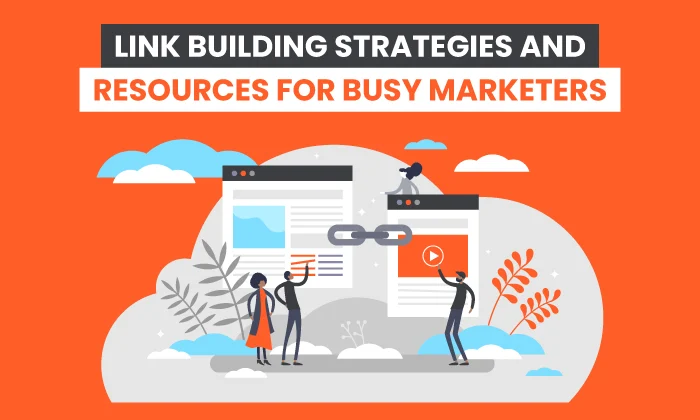High-Quality Link Building Techniques for Better Rankings
How Search Engines Evaluate Links High-Quality Link Building Techniques for Better Rankings
Link Quality vs. QuantityUnleashing
the Power of High-Quality Backlinks!”
Creating Linkable Assets
Developing Valuable and Shareable Content
Infographics, Guides, and E-Books
Building Relationships with Webmasters
Reaching Out to Influencers and Bloggers
Guest Posting on Niche-Relevant Websites
Leveraging Social Media for Link Building
Sharing Content on Social Platforms
Engaging with Online Communities
Utilizing Business Directories and Listings
Submitting to Local and Industry-Specific Directories
The Impact of Citations on Local SEO
The Power of Content Promotion
Using Outreach Strategies for Content Exposure
Collaborating with Other Content Creators
Monitoring and Analyzing Backlink Performance
Tools for Tracking Backlinks
Assessing the Effectiveness of Link Building Efforts
Avoiding Black Hat Link Building Techniques
Understanding the Risks of Unethical Practices
Building Links That Stand the Test of Time
Emphasizing Quality over Quantity
Focusing on Relevant and Authoritative Links
Link Diversity and Natural Link Profiles
Maximizing Internal Linking Strategies
The Benefits of Internal Linking
Best Practices for Internal Link Structure
Earning Editorial Backlinks
Gaining Backlinks from Reputable News Sources
Becoming a Source for Journalists and Writers
Competitor Link Analysis
Understanding Your Competitors’ Backlink Strategies
Identifying Opportunities for Your Website
The Importance of High-Quality Link Building
High-quality backlinks serve as a vote of confidence from one website to another. Search engines interpret these votes as a measure of a site’s credibility and relevance. The more authoritative and relevant websites link to yours, the more search engines will perceive your website as a valuable resource, resulting in improved rankings.
What Are High-Quality Backlinks?
High-quality backlinks are links that come from reputable sources with relevant content. These links are typically earned through genuine connections, valuable content, and ethical practices, as opposed to manipulative techniques.
Understanding Search Engine Algorithms
To effectively implement high-quality link building, it’s essential to understand how search engines evaluate and rank websites based on their backlink profiles.
How Search Engines Evaluate Links
Search engines utilize sophisticated algorithms that assess the quality and relevance of backlinks. Factors like the authority of the linking website, the context of the link, and the anchor text used play crucial roles in determining link value.
Link Quality vs. Quantity
In the past, link building was often synonymous with amassing a large number of links, regardless of their quality. However, modern search engine algorithms prioritize the quality of backlinks over their quantity. A few high-quality backlinks from authoritative sources can significantly outweigh numerous low-quality links.
Creating Linkable Assets
One of the most effective ways to attract high-quality backlinks is by creating linkable assets – content that is valuable, informative, and shareable.
Developing Valuable and Shareable Content
Investing in well-researched, comprehensive, and engaging content can make your website a go-to resource in your niche. Content that educates, entertains, or solves a problem for the audience is more likely to be shared, increasing the chances of earning valuable backlinks.
Infographics, Guides, and E-Books
Visual content, such as infographics, along with comprehensive guides and e-books, can be highly shareable and link-worthy. Infographics, in particular, are favored by online users for their ease of understanding complex information.
Building Relationships with Webmasters
Establishing meaningful connections with webmasters, bloggers, and influencers can open doors to valuable link-building opportunities.
Reaching Out to Influencers and Bloggers
Identify influential bloggers and social media personalities within your industry and reach out to them. Collaborating on content or having them feature your content can lead to authoritative backlinks and increased exposure.
Guest Posting on Niche-Relevant Websites
Contributing guest posts to websites relevant to your niche allows you to showcase your expertise to a new audience and earn contextual backlinks to your site.
Engaging with Online Communities
Participate in relevant online communities and discussions, demonstrating your knowledge and expertise. As you build credibility, others may naturally link back to your website as a valuable resource.
Utilizing Business Directories and Listings
Don’t overlook the impact of local and industry-specific business directories and listings on your link-building efforts.
Submitting to Local and Industry-Specific Directories
Ensure your business is listed on reputable local directories and industry-specific platforms. These citations not only provide valuable backlinks but also enhance your website’s local SEO.
The Impact of Citations on Local SEO
Local citations, which include your business name, address, and phone number, are critical for local SEO and can influence your website’s visibility in location-based searches.
The Power of Content Promotion
Creating exceptional content is just the first step; promoting it effectively is equally important.
Using Outreach Strategies for Content Exposure
Reach out to relevant websites, bloggers, and journalists, sharing your content and its value to their audiences. A well-executed outreach campaign can lead to valuable backlinks from authoritative sources.
Collaborating with Other Content Creators
Collaborate with other content creators in your industry to create valuable resources together. This partnership can lead to mutual backlinks and an expanded reach.
Monitoring and Analyzing Backlink Performance
Measuring the success of your link-building efforts is crucial to refine your strategies over time.
Tools for Tracking Backlinks
Use various SEO tools to monitor your backlinks and identify any potential issues. Regular monitoring helps you maintain a healthy backlink profile.

